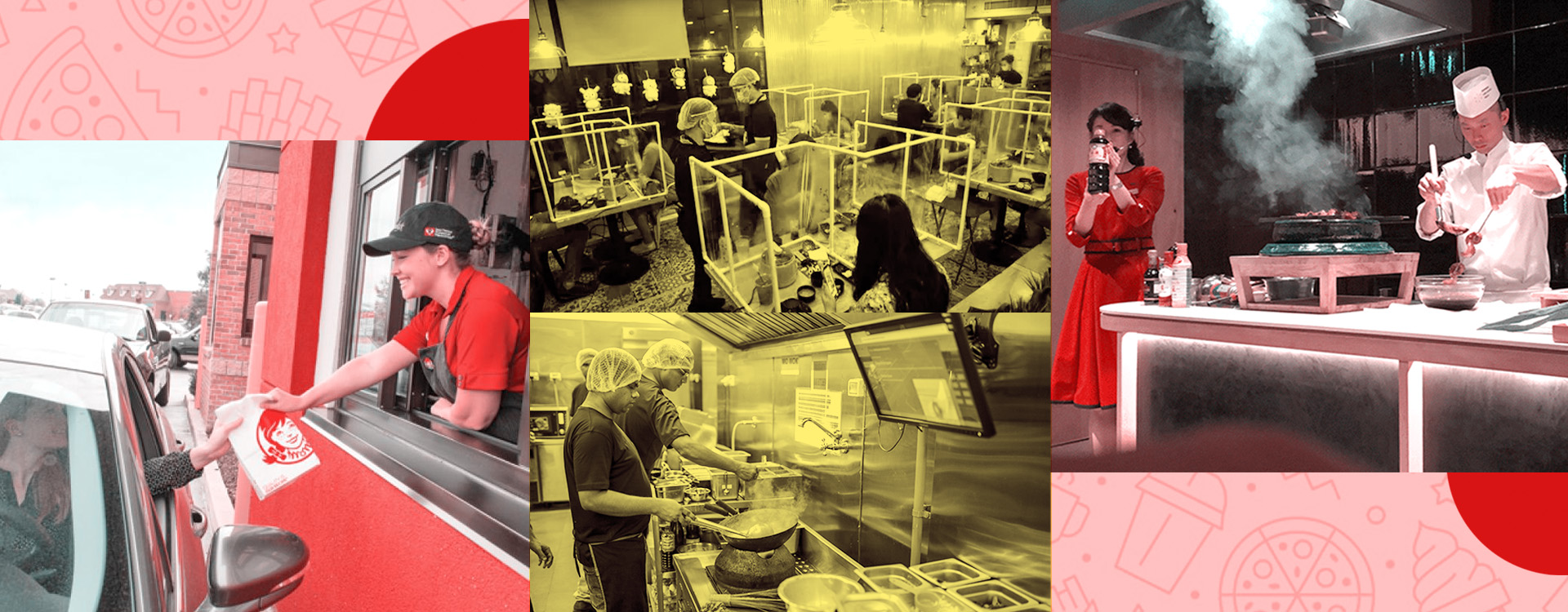The ‘eating-out’ habit underwent a massive change in the ongoing pandemic, as people became wary of eating outside due to hygiene and cleanliness concerns. The pandemic also forced people to relook at their food palette and diet as in such times consuming nutritious and immunity-boosting foods becomes paramount. The intermittent lockdowns and curfews imposed by state and central government have painted a grim picture for the QSR (Quick Service Restaurant) chains with the culture of dine-in fading and limited business hours.
According to a report from Edelweiss Securities, the organised QSR market shrunk by 23 percent in 2021 compared to 2020. Mounting rental costs caused many QSR chains to shut their shops. However, amid losses, QSRs are responding to altered consumer behaviour and bringing changes in their business processes to pull themselves back.
‘‘
According to a report from Edelweiss Securities, the organised QSR market shrunk by 23 percent in 2021 compared to 2020.
New changes brought into operations by the QSR chains
According to a report from Kotak Institutional Securities, the QSR industry has the potential to grow more than 50 percent over the period 2021-2025. People in the pandemic have exhibited ordering-in habits and acceptance of delivery fees and availing services digitally. QSRs are using this crisis to optimise costs, store operations and design.
Live Kitchen: Live kitchen is a culinary art form that involves the chef preparing the food live and serving right at the table. The benefits of a live kitchen include better engagement between the chefs and the guests, better presentation of food, tantalises the senses, and also showcases safe hygiene practices to the guests.
As food is prepared live, there is less wastage as the quantity of the food prepared is as per the customer demand. Introducing Live Kitchens also eliminates the need of building large kitchens that can lower infrastructure costs.
Drive-thru facility or Takeaways: QSR chains Domino’s and Mcdonald’s have scaled up their operations through convenience channels such as takeaways and drive-thru due to low out-of-the-home consumption. According to a report by brokerage firm Motilal Oswal, the sales per average store have increased to Rs 48.5 million in 2020 from Rs 35.3 million in 2016 on strengthening drive-thrus and takeaway channels. Such channels are expected to revive the QSR industry in a post-covid world.
Domino’s Drive-N-Pick model has helped to achieve an overall recovery of 101.4 percent, where alone the takeaway channel accounted for a recovery rate of 163 percent followed by dine-in’s recovery rate of 43.06 percent. In April 2021, Mad Over Donuts registered 45% sales of the pre-Covid times through takeaways.
Cloud or Ghost Kitchen: The increasing rental costs have mushroomed cloud kitchens as companies want to save more on capital expenditure. A recent report by Dineout, a table booking platform reveals that cloud kitchens will increase their market share to 30 percent in the future from its current share of 13 percent.
American fast-food firm Wendy’s plans to foray into Indian markets in association with its master franchisee Sierra Nevada Restaurants and cloud kitchen specialist Rebel Foods. Biryani By Kilo, which operates on a cloud kitchen model has opened 20 new outlets in the pandemic and has witnessed growth in the annual revenue by 50 percent amounting to Rs 150 crore.
Delivery through food apps: QSR chains have launched independent food apps as they realised revenue thinning while paying commissions to the food aggregators platforms Swiggy and Zomato. In January 2021, Taco Bell introduced its app in India, which is witnessing an uptick of orders and growth in delivery over the last few months.
Rebel Foods also launched its food delivery app EatSure in 2020, which features itself and partner brands. Apps ensure transparency, assurance about the preparation of food, its handling, and delivery that bolsters consumer trust.
Realign the kitchen space: Cleanliness and hygiene was always the focus of any food chain, but with the onset of covid the concerns are heightened. Kitchen space will now be scientifically designed to ensure minimum contact between different kitchen functions.
To encourage social distancing in kitchens, the number of chefs and staff employed should be reduced. The kitchen design should be such that the overall floor space is reduced and movement for each chef is as little as possible. Appropriate sanitation points will be built for cooks and chefs before entering the kitchen premises.
What lies ahead for the QSR chains in the future?
Obeying to the preventive measures of covid, the seating arrangement of the hotels will shrink, which means a long waiting queue. Customers will be avoiding crowded places, which will pave the demand for deliveries and takeaways. More QSR chains will build their delivery and drive-through capabilities with streamlined menus. In a post covid world, more brands will promote their apps because of high commissions charged by aggregators and focus on expanding their presence across the country.




